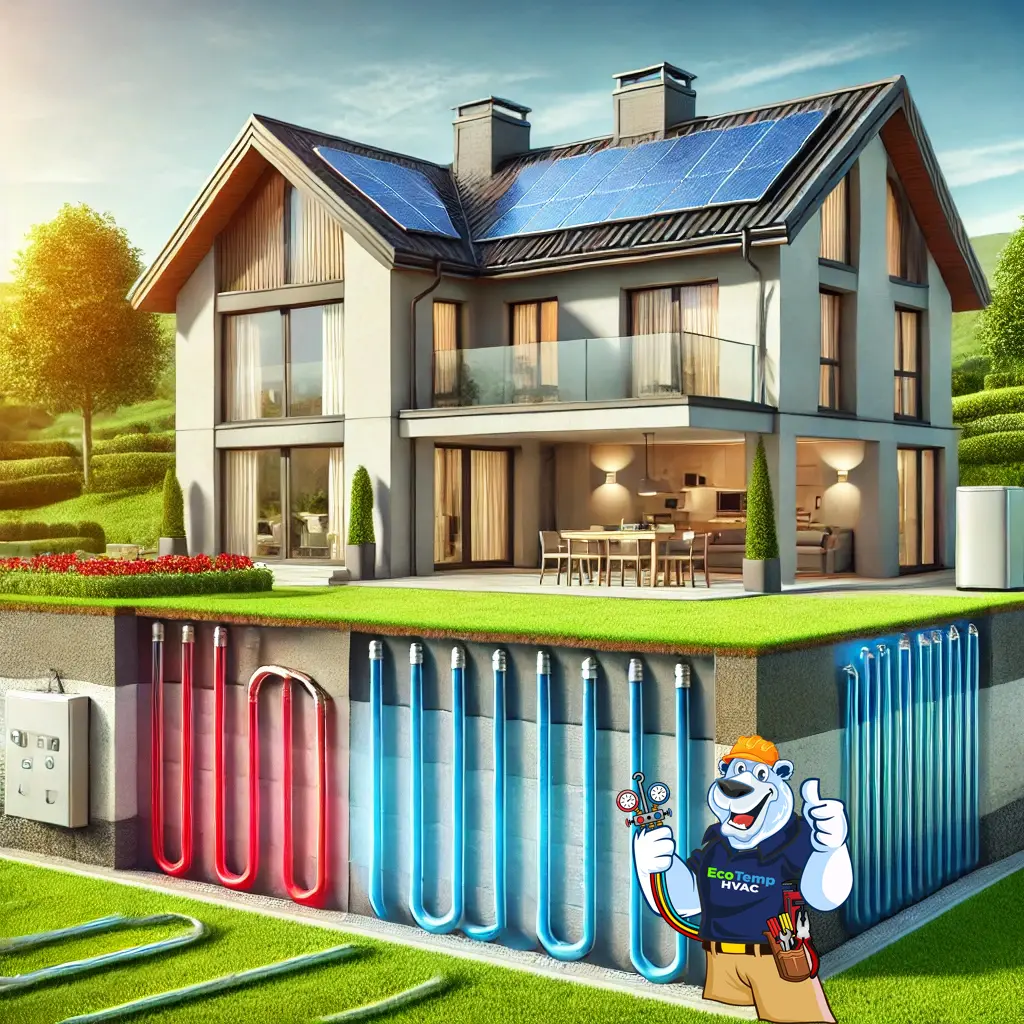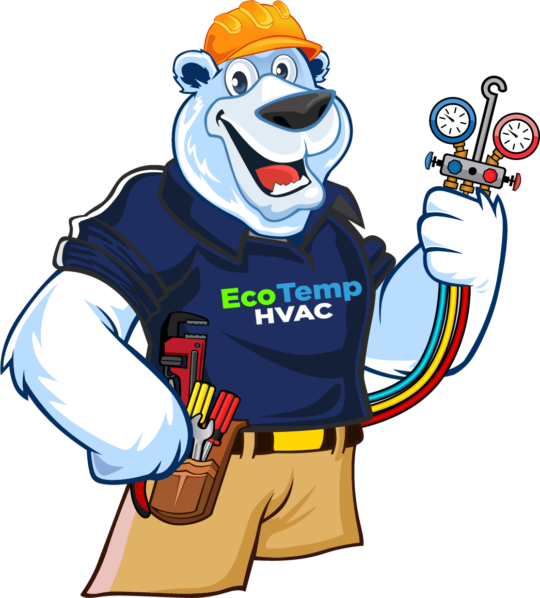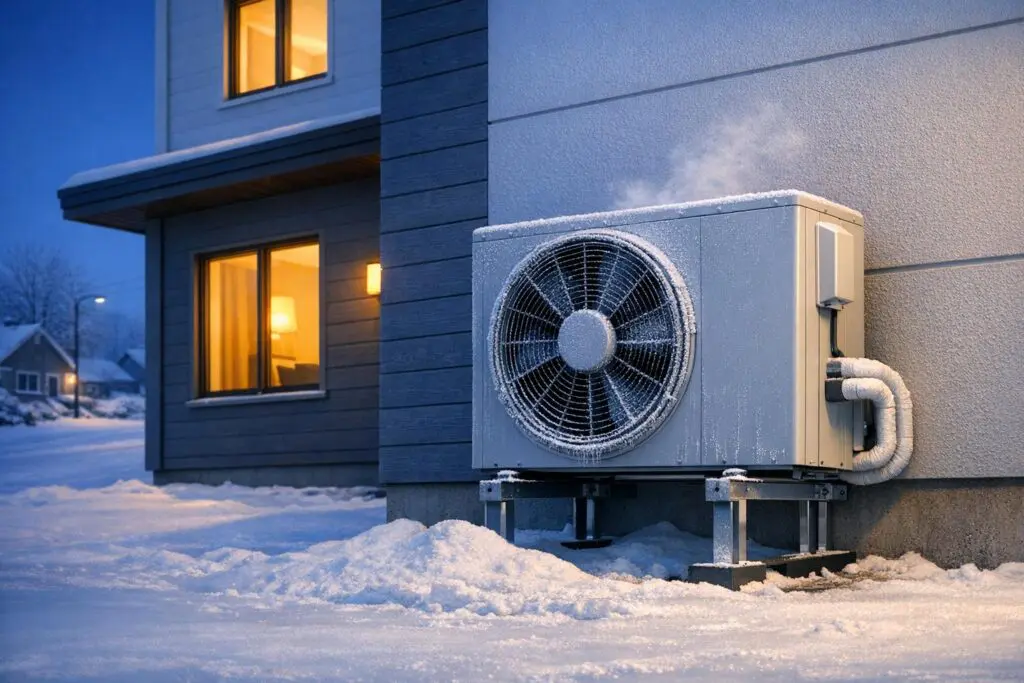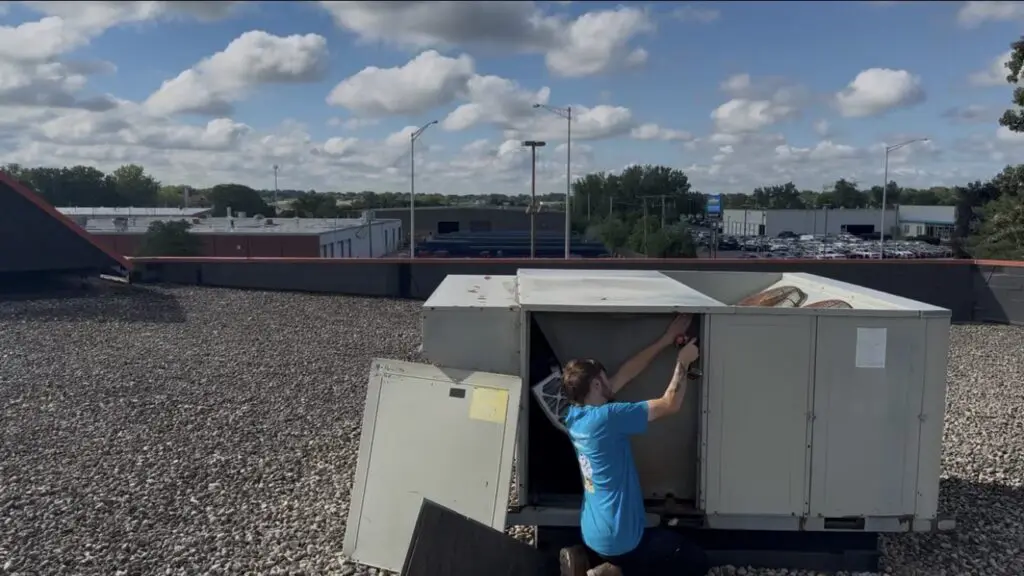What makes geothermal heating different from traditional systems?
Geothermal heating systems use the Earth's stable underground temperatures to heat and cool your home or business. Unlike traditional systems that burn fossil fuels, geothermal systems rely on renewable energy from the ground, making them eco-friendly and cost-effective.
How does geothermal heating work?
Geothermal systems circulate a water-based solution through underground pipes called loops. These loops transfer heat to or from the ground into your home. The system then distributes this heat through ductwork or radiant floor heating.
Can geothermal systems be installed in urban areas like Chicago?
Yes, geothermal systems can be installed in urban areas. Vertical loop systems are ideal for space-limited properties in cities like Chicago. A professional evaluation is necessary to determine the best configuration for your property.
How much does it cost to install a geothermal system?
The cost ranges between $18,000 and $40,000 with bigger more complex projects that can stretch over $45,000 for residential installations, with commercial projects potentially costing more. Factors such as system type, soil composition, and existing infrastructure affect the total cost. Tax incentives and rebates can significantly offset these expenses.
What is the lifespan of a geothermal system?
Geothermal ground loops can last over 50 years, while the indoor heat pump typically lasts between 20 to 25 years. Regular maintenance can extend the life of the system and ensure optimal performance.
Are geothermal systems noisy?
No, geothermal systems are known for their quiet operation. Unlike traditional HVAC systems, they have no noisy outdoor units, and the indoor components operate at a noise level comparable to a refrigerator.
How long does a geothermal installation take?
For residential properties, installation usually takes 3-5 days. Commercial installations or projects with more complexity may take several weeks. The timeline depends on factors like loop type, permitting, and site preparation.
Can geothermal systems provide both heating and cooling?
Yes, geothermal systems are versatile and can provide both heating and cooling by reversing the heat exchange process. This makes them a year-round solution for climate control.
Are there maintenance requirements for geothermal systems?
Geothermal systems require minimal maintenance compared to traditional HVAC systems. Regular checks of the heat pump, loops, and connections are recommended. Most systems benefit from annual inspections to ensure efficiency and longevity.
How does a geothermal system affect property value?
Installing a geothermal system can significantly increase property value due to its energy efficiency, low operating costs, and eco-friendly appeal. Many homebuyers see geothermal systems as a desirable, long-term investment.
Can boilers be geothermal?
Yes, boilers can integrate with geothermal systems, especially for radiant floor heating. Geothermal boilers provide a consistent and energy-efficient way to heat water using the Earth's natural energy, making them an excellent choice for eco-conscious homeowners.












